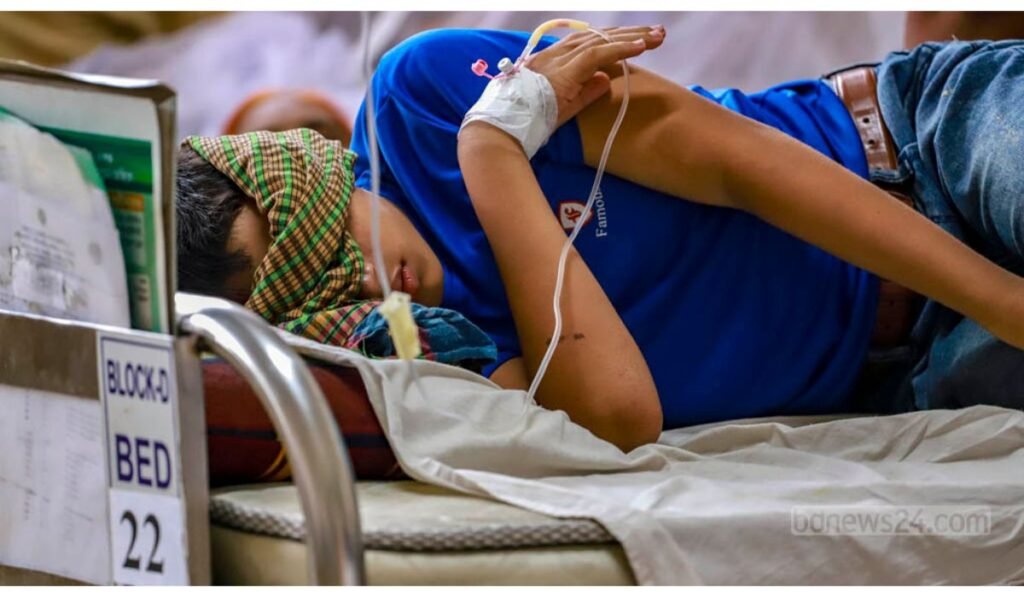DHAKA (Reuters) – Bangladesh is facing its worst dengue outbreak in years, with over 400 deaths reported. Rising temperatures and a prolonged monsoon season have led to a surge in infections, overwhelming hospitals, particularly in urban areas. According to the latest official data, at least 407 people have died in 2024, and 78,595 patients have been hospitalized nationwide. #BangladeshDengueOutbreak
By mid-November, 4,173 patients were receiving treatment, with 1,835 in Dhaka and 2,338 in other regions. “We’re experiencing monsoon-like rainfall even in October, which is unusual,” said Kabirul Bashar, a zoology professor. The changing weather patterns, linked to climate change, have created ideal conditions for the Aedes aegypti mosquito, the primary dengue carrier.
Bashar highlighted that the shifting seasons are providing favorable conditions for mosquito breeding. The dense population in cities further accelerates the disease’s spread, which usually peaks during the monsoon from June to September but has extended beyond that this year. The combination of rising temperatures and longer monsoons has caused a spike in mosquito breeding, driving the virus’s rapid spread. Bashar called for year-round vector surveillance to curb the disease in Bangladesh.
Dr. ABM Abdullah, a renowned physician, stated that early detection and proper treatment can reduce dengue-related deaths to under 1%. He emphasized that early diagnosis and prevention are essential for controlling the disease.
The previous year recorded the highest number of deaths, with 1,705 fatalities and over 321,000 infections. The increasing frequency and severity of outbreaks put immense pressure on Bangladesh’s already struggling healthcare system, as hospitals attempt to manage thousands of cases.
Health officials have recommended using mosquito repellents and bed nets to prevent mosquito bites. Experts are also advocating for stricter measures to eliminate stagnant water, where mosquitoes breed. #BangladeshDengueOutbreak
Doctors noted that delays in seeking treatment, especially in rural areas where patients must travel long distances to reach specialized facilities in Dhaka, are contributing to the rising death toll. The disease often presents mild symptoms initially, leading to undiagnosed cases until patients reach critical conditions.
As the Bangladesh dengue outbreak worsens, the government is facing immense pressure to manage the situation. While medical teams are working tirelessly, the surge in cases is straining resources. Experts attribute the outbreak to shifting weather patterns, which are fostering optimal breeding conditions for the disease-carrying mosquitoes.








